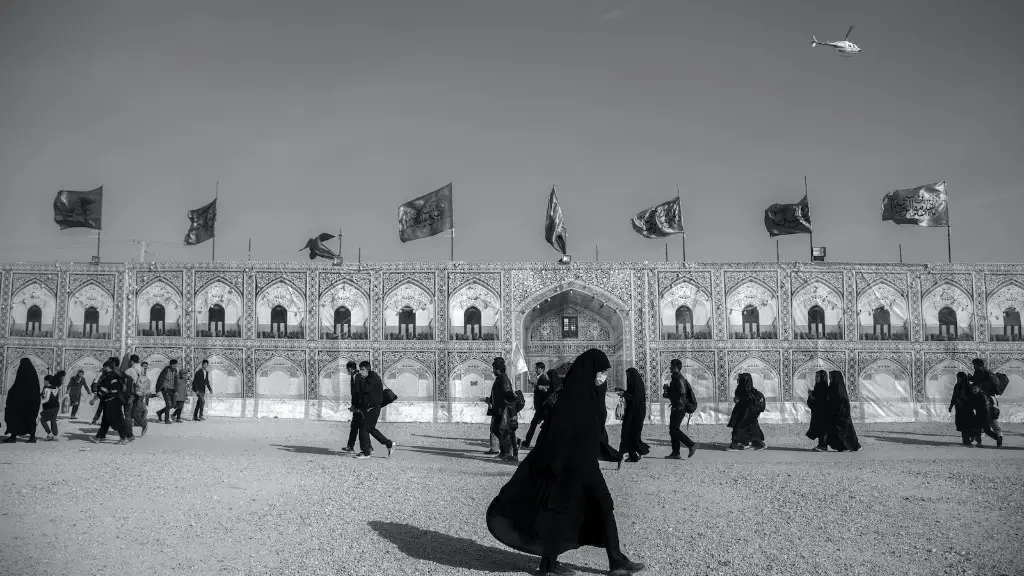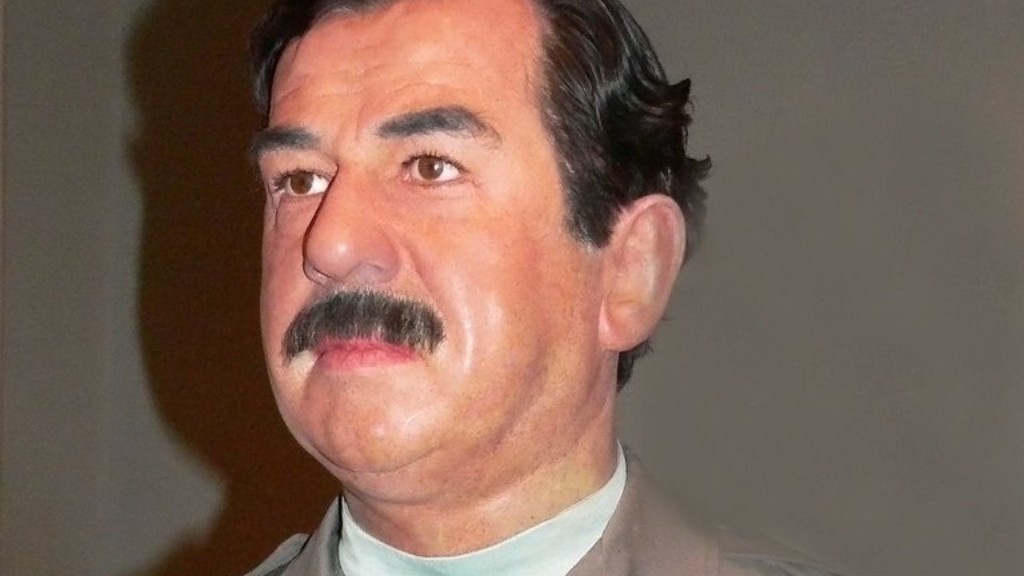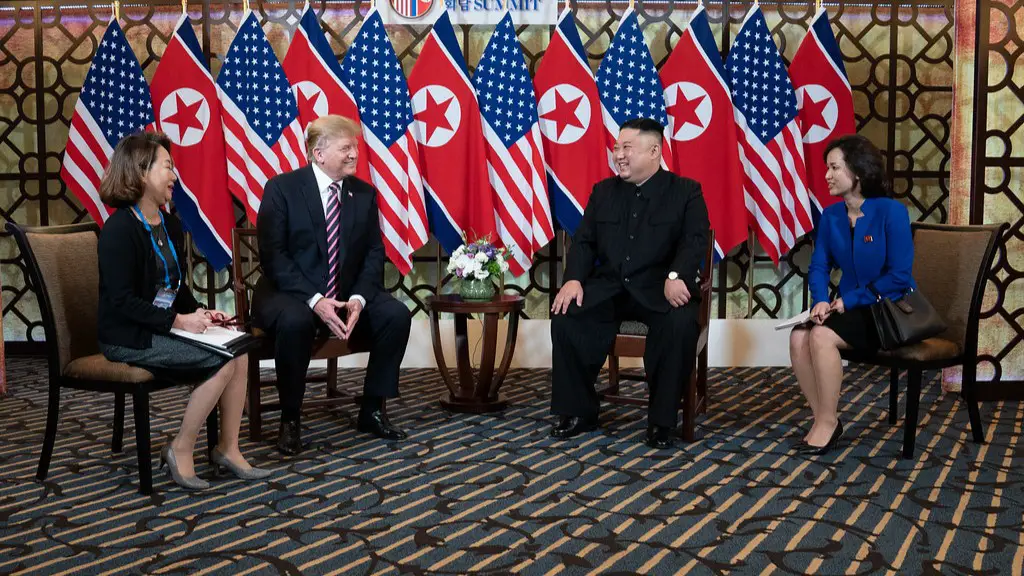Saddam Hussein was the President of Iraq for over two decades, during which time he was responsible for numerous human rights violations. He was eventually overthrown by a U.S.-led coalition in 2003 and was later tried and executed by the Iraqi government. Although there is no definitive answer to the question of whether or not Saddam Hussein was evil, there is no doubt that he was a brutal dictator who caused great suffering for his people.
There is no easy answer to this question. Saddam Hussein was undeniably a brutal dictator, responsible for the deaths of thousands of his own people. At the same time, some would argue that he was a necessary evil, keeping order in a country that would otherwise descend into chaos. Ultimately, whether or not Saddam Hussein is considered evil is a matter of opinion.
What bad things did Hussein do?
Saddam and the country’s Ba’athist government used a variety of methods to maintain power, including secret police, state terrorism, torture, mass murder, genocide, ethnic cleansing, rape, deportations, extrajudicial killings, forced disappearances, assassinations, chemical warfare, and the destruction of the Mesopotamian marshes. These methods allowed the government to control the population and keep dissenters in line. However, they also led to widespread human rights abuses and a humanitarian crisis in the country.
Saddam Hussein’s goals as president were to supplant Egypt as leader of the Arab world and to achieve hegemony over the Persian Gulf. In September 1980, he launched an invasion of Iran’s oil fields, but the campaign bogged down in a war of attrition.
What is Saddam Hussein known for
Saddam Hussein was the leader of Iraq from 1979 until 2003. He was known for his repressive regime which killed thousands of people. However, he also projected an image of himself as Iraq’s most influential leader and a courageous moderniser.
Hussein was praised in the past by some for modernizing Iraq and using its oil wealth to improve conditions for the general population. However, his rule was also marked by human rights abuses and repression, and he was eventually ousted in a 2003 US-led invasion.
Why did the US want to stop Saddam Hussein?
The Iraq War was primarily justified by the US Congress through the Iraq Resolution. The stated goal of the war was to “disarm Iraq of weapons of mass destruction, to end Saddam Hussein’s support for terrorism, and to free the Iraqi people”. However, many have argued that the true purpose of the war was to gain control of Iraq’s oil reserves and to establish a US presence in the Middle East. Whatever the true reasons for the war, it has had devastating consequences for the Iraqi people.
The United States supported Iraq during the Iran-Iraq War in several ways. Firstly, it provided economic aid totaling several billion dollars. Secondly, it sold Iraq dual-use technology that could be used for both civilian and military purposes. Thirdly, it provided military intelligence to Iraq, helping it to better target its attacks. Finally, the United States trained special forces operatives for Iraq, teaching them how to carry out specific missions.
Was Iraq better under Saddam?
It’s no surprise that Iraqis are sick of their way of life. America’s intervention in Iraq, their support for Saddam, and later their war and sanctions on him, made Iraq a terrible place to live. If anything, it’s a surprise that more Iraqis haven’t spoken out against America’s involvement in their country.
There are two main motives ascribed to Saddam Husayn’s decision to invade Iran in 1980. One motive is that he invaded for geopolitical gain when international factors worked in his favor. The other is that he invaded to prevent Iran from fomenting revolution in Iraq.
What is Saddam Hussein last words
Saddam Hussein’s final words were “Allahu Akbar The Muslim Ummah will be victorious and Palestine is Arab!”. This shows that even in his last moments, Saddam Hussein was thinking about the Muslim Ummah and the cause of Palestine. His words are a reminder to us that we should not give up on our dreams and that we should always fight for what is right.
Saddam Hussein was a strong and honest leader who cared for his people. He was generous and gave gifts to both the government and the people. He was a man of his word and kept his promises. Saddam was a great leader and will be missed by many.
What language did Saddam speak?
Although Saddam Hussein was born in Tikrit, Iraq, he considered himself a pan-Arab leader and sought to unify the Arab people. He believed that the Arab people had a common history and culture, and that they should be united under one language – Arabic. Saddam argued that other languages, such as English or French, were colonial languages that had been imposed on the Arab people. He believed that Arabic was the language of the Quran and the language of the Arab people, and that it should be used as the primary language in all Arab countries.
Saddam adhered to an eccentric interpretation of Islam that Ba’thist intellectuals had developed in the mid-twentieth century. For him and many other Ba’thists, Islam was the religion of the Arabs. This meant that Saddam was not interested in proselytizing or spreading the Islamic faith to non-Arabs. Instead, he saw Islam as a way to unify the Arab people and give them a sense of identity and purpose. This eccentric interpretation of Islam ultimately led to Saddam’s downfall, as he was unable to gain support from the Muslim world at large.
Who owns Iraqi oil now
The Rumaila oil field is an oil field located in southern Iraq. The field is owned by Iraq and subcontracted to BP and CNPC under Iraq Producing Field Technical Service Contract (PFTSC). BP is an operator of the project with 476% while CNPC and SOMO hold 464% and 6%, respectively.
The field was discovered in 1953 and is the largest oil field in Iraq. The field was developed by Iraq Petroleum Company (IPC) and production started in 1955. The field currently produces around 1.5 million barrels of oil per day (bpd).
The war in Iraq was illegal according to the United Nations Charter. The UN Charter states that all member states must refrain from the threat or use of force against the territorial integrity or political independence of any state. The war in Iraq violated this rule.
Did the US get oil from Iraq?
The United States imported an average of 157,000 barrels of petroleum per day from Iraq in 2021. This represents a significant increase from the 2020 average of just over 80,000 barrels per day. The increase is due to a number of factors, including the stability of the Iraqi government and the increase in crude oil production in the country.
The US provides bilateral assistance to Iraq in order to bolster its democratic institutions and preserve the strategic importance of the US-Iraq partnership in a changing Middle East region. This assistance takes the form of financial aid, military support, and technical assistance. The US has also been working closely with Iraq to help it rebuild its infrastructure and economy following the devastating impacts of the Saddam Hussein regime and the recent conflict.
Is Iraq a U.S. ally
The United States and Iraq have a long and complicated history. The two countries have been strategic partners at times, and have been at odds with each other at other times. The American invasion of Iraq in 2003 led to a period of deep American involvement in Iraq’s political and military affairs. This involvement has helped to build a strong relationship between the two countries. Today, both countries consider themselves to be strategic partners. This partnership is based on shared interests and goals, and on the strength of the relationship that has been built between the two countries.
It is interesting to note that Iraq’s three main suppliers of weaponry during the war were the Soviet Union, China, and then France. The United States sold Iraq over $200 million in helicopters, which were used by the Iraqi military in the war. However, these were the only direct US-Iraqi military sales.
Final Words
There is no universal answer to this question since people can have different opinions on what defines “evil.” However, many would say that Saddam Hussein was evil due to the mass killings and human rights abuses that occurred during his reign as leader of Iraq.
Many people believe that Saddam Hussein was an evil dictator. He was responsible for the death and suffering of many innocent people. He was a cruel and brutal leader who didn’t care about his people. He was a power-hungry tyrant who only cared about himself.





